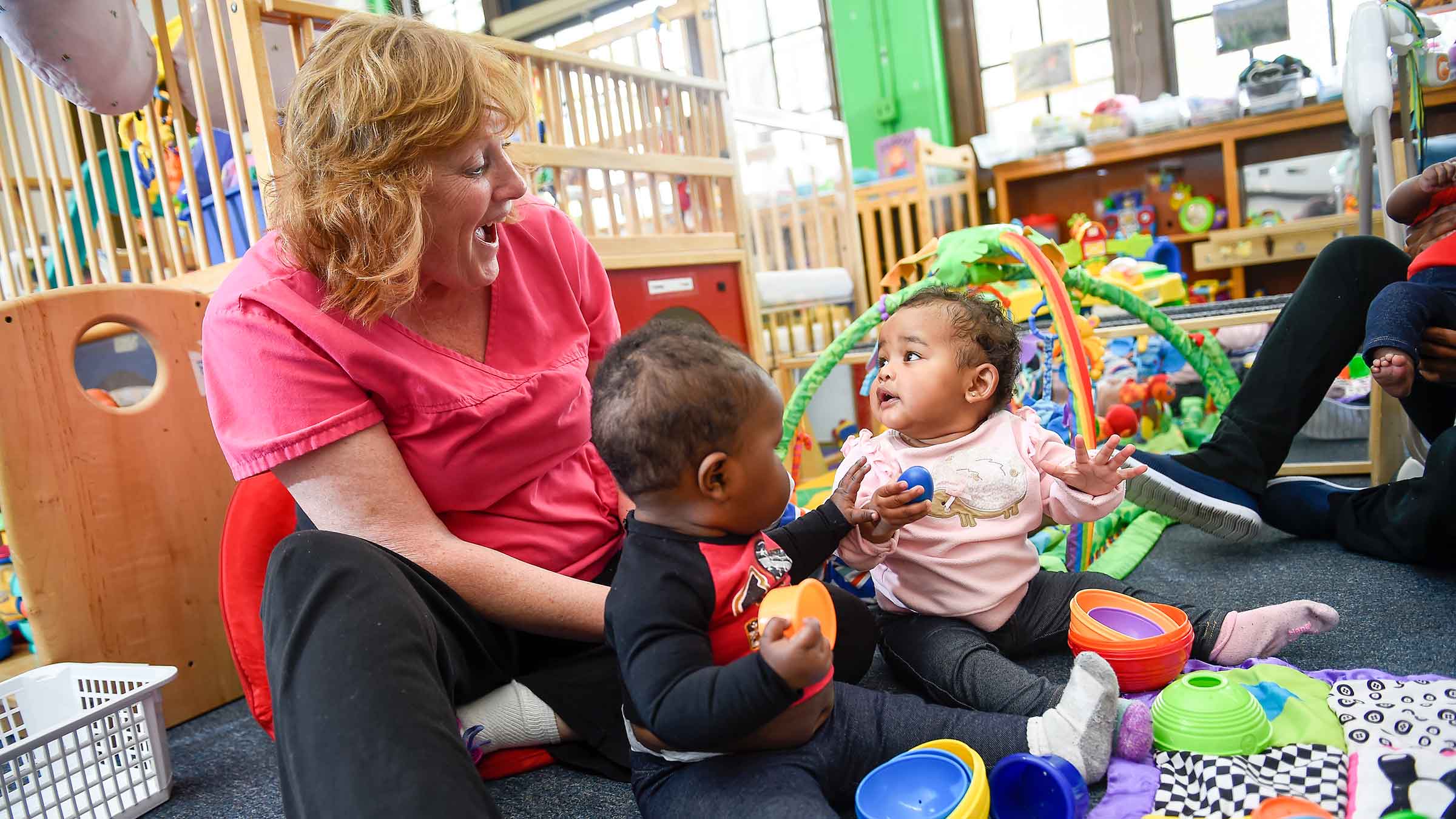
The early childhood education sector is facing a crisis in Minnesota and across the nation. Amidst a shortage of staff and teachers for our youngest learners, educational programs are looking to take significant steps to bolster support for families and educators alike. "The cost of child care is ridiculous and completely unreasonable. Families aren't able to pay for child care, so they're not able to work. It really affects our entire economy and our entire well-being as a state,” says Krystal Shatek, new member of the 80x3 Advisory Committee. Krystal has been in early childhood education and administrative roles for over 20 years and also served on the Great Start for All Minnesota Children Task Force.
Child care costs have skyrocketed to unsustainable levels for many families, putting many of those families in a position of working multiple jobs or sacrificing an income to take care of their children. Not only that, but many of the families that are served through Krystal’s program are coming from traumatic circumstances. Krystal notes, "Children that are from families that have gone through significant trauma... are coming from the highest number of adverse childhood experiences you can imagine." This trauma often manifests in disruptive behaviors in the classroom, further exacerbating the challenges faced by educators.
"Their trauma is expressed through their behavior, which affects the whole classroom," says Krystal. “However, many early childhood educators feel ill-equipped to handle these challenges without proper support and training.
On July 1, 2024, the state of Minnesota’s Early Learning Scholarships Program will be expanded to offer more comprehensive support to families. Krystal emphasizes, "The scholarships available right now don't cover the entire cost of child care." By increasing scholarship funding, more families will have the opportunity to access high-quality care for their children, supporting their academic and emotional development.
Creating a sustainable future for early childhood education requires a multi-faceted approach that addresses the needs of both families and educators. Minnesota is taking significant steps toward transforming the early childhood education sector and ensuring that all children have access to high-quality care and support by expanding scholarships, prioritizing trauma-informed care, and investing in educator support and training.
Krystal says there is a need for "quality over quantity" in early childhood education initiatives. Greater Twin Cities United Way’s 80x3: Resilient from the Start initiative is focused on "making sure that these teachers, these kids, these families all have safe spaces to work and learn and bring their children." This commitment to quality programming and support reflects a broader shift towards holistic, trauma-informed approaches to child care and education.
"The research that they put into it is incredible. And they have an amazing training program that they have designed for educators to help increase trauma-responsive programming and understanding," says Krystal. This evidence-based approach ensures that initiatives like 80x3 are not only effective but also sustainable in the long term.
The success of early childhood education initiatives hinges on the ability to support both families and educators. By addressing the systemic challenges facing the sector and prioritizing trauma-informed care and support, Minnesota is paving the way for a brighter future for all children. As Krystal aptly puts it, "We need to have a child care system that can support these families, not just until they hit the bare minimum of getting out of poverty, but until they're able to feel secure and thrive in the community."